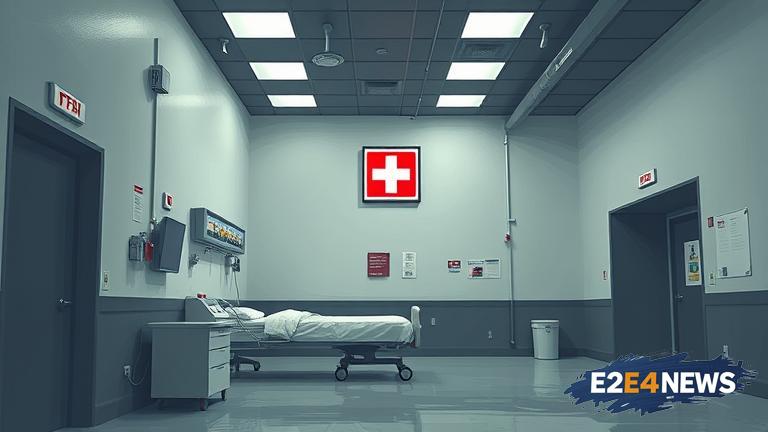Senator Chris Murphy has raised concerns over the increasing number of hospital closures in the United States, highlighting the financial struggles faced by these institutions. The closures have been particularly pronounced in rural areas, where access to healthcare is already limited. Murphy emphasized that the trend poses a significant threat to the country’s healthcare system, leaving many communities without access to essential medical services. The senator’s comments come as the US healthcare system grapples with rising costs, decreased reimbursements, and staffing shortages. Many hospitals have been forced to operate on thin margins, making it difficult for them to remain financially sustainable. The closures have also led to job losses and economic disruption in affected communities. Furthermore, the lack of access to healthcare in rural areas can have devastating consequences, including increased mortality rates and poor health outcomes. Murphy has called for increased funding and support for rural hospitals, as well as policy reforms to address the underlying causes of the closures. The senator’s concerns are echoed by healthcare experts, who warn that the trend could have far-reaching consequences for the US healthcare system. The closures have also sparked debates about the role of government in supporting healthcare infrastructure and the need for innovative solutions to address the financial struggles faced by hospitals. In addition, the issue has highlighted the importance of healthcare access and the need for policymakers to prioritize the needs of rural communities. The US healthcare system is considered one of the most advanced in the world, but the hospital closure crisis has exposed deep-seated flaws and inequalities. As the situation continues to unfold, lawmakers and healthcare leaders are under pressure to find solutions to the crisis. The long-term consequences of inaction could be severe, with potential impacts on public health, economic stability, and social welfare. Ultimately, addressing the hospital closure crisis will require a comprehensive and multifaceted approach that involves government, healthcare providers, and community stakeholders. By working together, it may be possible to mitigate the effects of the crisis and ensure that all Americans have access to quality healthcare, regardless of their location or socioeconomic status.
